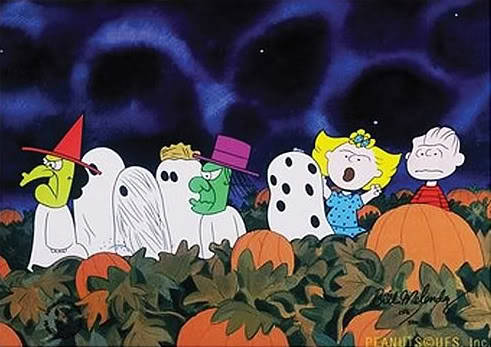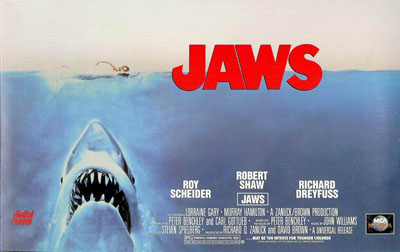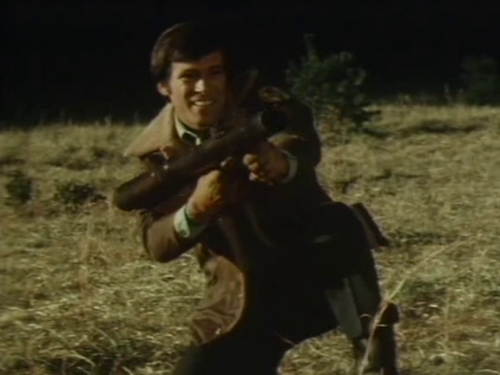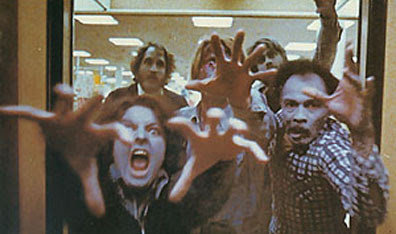By Nickolas Cook
Editor-In-Chief
The Black Glove Magazine
Another year of posting the electronic version of The Black Glove Magazine has come and gone and I still haven’t seen “The Great Pumpkin”.
Most importantly, I never thought I’d be able to sustain this thing for two years (and counting, since we’ve already started work on issue #25 for July 2011, as of this posting). Of course, anyone who takes a look at the Staff Profiles page each month knows I ain’t doing this by myself. Not by a long shot. There are some very talented people who are writing for this e-magazine. Some of them have won various genre awards for their works, both fiction and otherwise. All of them are highly regarded in the industry by their peers and fans alike.
And they’re doing for the love of the genre.
Now I can hear some of the more mercenary writers out there: “Write for FREE? HA! No way! I get paid for my time and talent.”
Hey, no arguments from this guy. Besides, I've had them with too many folks over the years, on different industry frequented message boards.
I love to get paid for my writing. It doesn’t happen often enough for my tastes, but I make out okay for the amount of energy I put into it. To tell the truth, it's probably more than I deserve in some cases. But I won’t argue with a royalty check, no matter how guilty I might feel for the hours that I may or may not have put into a story, novel or review. I figure it all works out in the end. And since I do an awful lot of FREE writing for this magazine and for others, I figure some all knowing, accounting Karmic force is giving me a little back, here and there.
Because I do write for the love of the genre. I'm no different than the fine people on staff, we all have a passion for what we write about; we want to pass on those passions for certain aspects of the genre—whether that be books, poetry, films, games, graphic novels/comics or whatever. These guys and gals deserve to make bank for their time and energy, but they, also like me, probably are well aware that in a world where internet writings are as plentiful as mosquitoes in a summer swamp, that sometimes, if you have something you really do love and want others to love as well…well, sometimes, you do it for FREE.
Every person on staff may have their own reasons for doing what they do every month, but I’m betting that’s at least some of the reason why they work their little arses off each month. They want to be sure that Horrorheads from all over the world get a chance to learn about those books, those films, those games, those comics, etc., etc, and from someone who knows what they’re talking about. Because it is their passion. And in a world where there’s so much horror fare to choose from (most of it pure shite), they want to make damned sure that the things they love don’t get lost in the rumble tumble of the ever expanding, but intellectually dwindling, genre.
So what does it mean to write for the love of it?
For me, it means sitting through hours upon hours of some really terrible movies that should never have been made by people who don’t know how to make a real horror film; it means reading pages upon pages of some truly abysmal books by people who had no right to ever see the light of day when it comes to publishing; and then pointing the way to the stuff I think is worth the time and effort.
Now, some of you who’ve read some of my reviews are probably asking how the hell I can find something as seemingly irredeemably pedestrian and forgettable as that great “Jaws” (1975) ripoff “Grizzly” (1976) aka "Killer Grizzly", from the late, great Southern genre director William Girdler (visit his official website here) to write so passionately about. Most people who watch the film see a boring, less than spectacular low budget movie; but I see a memory of a late night summer drive-in, sitting in the humid darkness with my family, the smells of beer, pizza, popcorn and corn dogs wafting through the whining-buzzing mosquito thick air.
But beyond that, I see this film’s place in the history of horror films. What social pressures made someone go out into the Georgia backwoods, with a fairly big name 70s cast, and a live Grizzly (remember a time before CGI, when if you needed a bear, it had to be a real one?) and shoot this low budget rip-off?
Clearly, profit is the number one driving force.
But beyond the fact that some people sat down in a meeting room in a studio one day after seeing “Jaws” and said ‘let’s go make out own version of that and make some money off of it’, what exactly made them choose a bear, what made them choose a burned out forest ranger, a Vietnam veteran helicopter pilot and a natural conservationist wildlife researcher as their main characters?
It’s all in the history books, man. Because, let's face it, what makes any silly horror film turn into a cult classic has a lot to do with its place in human history at the time it's unleashed upon its audience.
First off, someone had to know about the place where the bear is killing and about the bears, so we have Christopher George in one of his many genre roles (one day, I swear I’m going to do a Top 13 Christopher George Horror Films in the magazine. HA!), playing the embittered park ranger who butts heads with the establishment—which was another big trend you see in smaller budget films at that point.
In 1976, bears were a big topic in the place where I come from, the South. People were hunting them damn near to extinction because no one was being very careful with the environment in general back then. People were just beginning to sit up and take a close look at the world and ask themselves, ‘if we continue to allow this sort of rampant uncontrolled drain on our natural resources, what will become of future generations, when the population will be even larger and, therefore, so will the drain on those resources?’
Vietnam was still a fresh wound in this country’s collective memory and you see a lot of Vietnam vets in lots of films from the early 70s to the late 90s (not as much now, because we have that nasty old desert we’ve been pouring another kind of natural resource into for the last 20 something years, right?).
Most the time the vet has to have a speech about how rough it was over there, which you do get in “Grizzly” –just not as abrasive as in some other films of that period, where the vet is downright nuts (see another low budget, almost horror film, “To Kill a Clown” (1972), starring Alan Alda as a nutso crippled vet who uses his specially trained Dobermans to keep a couple hostage so he can spout about how rough it was over there and that’s why he needs to kill some people; it makes for a horrifying tribute to what we as a culture thought of the young men which we forced to go over and kill people for us- the blatant disrespect and lack of empathy we had for them back then).
So that explains the how, who and why of that little surprise summer drive-in hit from a cultural and historical standpoint, right?
But why the bear?
Well, if you’ve ever lived in the real woods, like I did, then you’d understand why an 18-foot tall prehistoric throwback Grizzly Bear would be as frightening as a big ass Great White shark would be to someone who lived on the New England coast. In many ways, to a good old boy, living in the South, back then bears were the sharks of the forest.
Growing up, I heard my fair share of legends about bears, some of them brutally realistic, others obviously fables which had been passed down from the Seminoles to white settlers over the years, and you sure as hell were glad those weren’t true stories.
Hell, I’m still scared of bears.
They pretty much eat anything that doesn’t eat them first, if they’re hungry enough.
Man included.
Don’t believe me?
Google “bear attacks in the 70s in Florida and Georgia” and I’m sure you’ll find plenty of old newspaper and anecdotal accounts of bloody encounters between man and bear.
I recently got the chance to see “Grizzly” on the big screen again at a local arthouse movie theater here in Tucson called The Loft. At age 41, I didn’t expect that the movie would mean as much to me as it did back when I was 6-going-on7-years old. But it all came back to me in that moment, when the first scene of the vast Georgia wilderness takes over the screen and that helicopter comes screaming out of nowhere to startle the viewer. That late summer night, with my family, a unit which has since then basically split apart to the point which I barely know them anymore; that sense of safety with my parents, the love and caring, all came back. Those smells came back—the popcorn, the beer, the dill pickles, the pizza, the corndogs, the humid pines and just cut grass smells. As did the, then, familiar sounds of buzzing mosquitoes on the summer air, the sounds of other families in their cars near us, the sound of the traffic outside the drive-in, beeping their horns, revving engines as they came or left the place.
So there are times when I write stuff for this magazine and I have to ask myself: which part am I trying to sell these readers- the memories or the historical significance?
How about both?
Because I believe for a true Horrorhead, a person who loves horror as much as you and I do, we cannot easily separate the two. Your memories of the film or book or game or whatever means something special to you. You want to reach out into that vast gray world, where we don’t really know anyone anymore, and you want to connect with other people; you want to touch them where it counts, that special place inside us where we eat, live and breathe this stuff. And you want to know their memories as much as you want them to know yours, right?
For instance, you want to see someone light up? Ask a person, who saw George Romero’s “Dawn of the Dead” (1978) during its original summer run at their local drive-in, what it felt like to be willfully emotionally brutalized by such over-the-top zombie violence, to watch the world crumble on the big screen as dead people ripped open living, screaming victims to eat their stomachs or their brains.
There isn’t a person I know around my age, who had the opportunity to see this movie all those years ago, who doesn’t get that look on their face.
We almost don’t need words…but we gush it all out anyway, don’t we?
For a horror fan, those moments, when we get hit with a “Phantasm” or a “Dawn of the Dead”, or by a book like “The Shining” by Stephen King (1977), for the first time, those are the moments that hold meaning for us.
So maybe I’m doing for that reason, too.
Maybe even more for that reason.
Maybe all of us here at The Black Glove are just trying to reach out into that cold gray beyond, into that vast and voidy nothing which seems to be what you have to face as you get older and less connected with the people around you, maybe we’re all reaching into that and seeing if we can feel anything reaching out to touch us back.
Hell, if that turns out to be the only reason I’ve been doing this for so long, and for all the years (hopefully) to come, then maybe that’s not so bad a reason.
It’s just got to mean something to someone else, if it means something to you, right?
I’m going to keep reaching out, Horrorheads. Feel free to do so, too. Share the memories with us. It sure can make that vast voidy gray nothing feel less lonely and intimidating when you do.
--Nickolas Cook
Editor-In-Chief
The Black Glove Magazine






